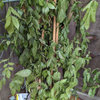sprinker blowout yourself questions
TimL
19 years ago
Related Stories

REMODELING GUIDES10 Features That May Be Missing From Your Plan
Pay attention to the details on these items to get exactly what you want while staying within budget
Full Story
REMODELING GUIDESConstruction Timelines: What to Know Before You Build
Learn the details of building schedules to lessen frustration, help your project go smoothly and prevent delays
Full Story
BEDROOMS7 Tips for Designing Your Bedroom
Learn how to think about light, layout, circulation and views to get the bedroom of your dreams
Full StoryMore Discussions







irri_guy
greenguy
Related Professionals
Arlington Landscape Architects & Landscape Designers · Otsego Landscape Architects & Landscape Designers · Edmond Landscape Contractors · Chesapeake Ranch Estates Landscape Contractors · Elmhurst Landscape Contractors · Haverhill Landscape Contractors · Manhattan Landscape Contractors · Nanuet Landscape Contractors · New Providence Landscape Contractors · North Haven Landscape Contractors · South Hackensack Landscape Contractors · Vacaville Landscape Contractors · Irvington Landscape Contractors · Alafaya Solar Energy Systems · East Lake Solar Energy Systemsjohnshenry
johnshenry
irri_guy
deeproots